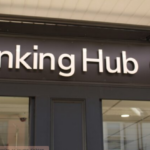The UK is preparing to negotiate a pioneering digital trade deal with former U.S. President Donald Trump, should he return to office, in a move aimed at strengthening economic ties between the two nations.
According to Exports Minister Gareth Thomas, discussions are already underway to explore opportunities in digital services and technology, sectors where the UK sees significant potential for growth.
“There are always possibilities of doing deals in the US, certainly around digitalisation and services,” Thomas said. “We’ve got a lot to offer, and there are definitely areas where we could work together. It’s in the US’s interests as well as the UK’s interests for us to collaborate.”
Trade Talks Gain Momentum
Government insiders suggest that Labour leader Sir Keir Starmer has already raised trade issues with Trump, who has reportedly signaled that an agreement could be “worked out.” Washington sources believe a partial agreement could be reached within months, particularly if negotiations focus on technology, digital trade, and financial services.
Britain’s efforts to secure a full-scale free trade agreement (FTA) with the U.S. have historically stalled over disputes on agricultural standards, such as the import of chlorinated chicken and hormone-fed beef. A previous attempt to finalize a deal with Trump during his first term fell apart when Joe Biden took office, leading the UK to shift its focus toward smaller, sector-specific agreements.
A potential UK-U.S. digital services agreement would likely follow the model of the UK-Singapore Digital Economy Agreement (DEA) signed in 2022, which streamlined regulations in financial services, law, banking, and technology.
Challenges on the Horizon
Despite optimism surrounding the deal, a major obstacle remains: the UK’s digital services tax. The tax, which raises £700 million annually from tech giants such as Google, Meta, and Amazon, has been strongly opposed by both Trump and billionaire entrepreneur Elon Musk.
Shadow Chancellor Rachel Reeves is expected to review the tax policy should a breakthrough in trade talks occur, potentially paving the way for a compromise.
Meanwhile, Starmer has reportedly assembled a “mini-Cabinet” dedicated to negotiating favorable terms with a potential Trump administration. The appointment of Peter Mandelson as UK Ambassador to Washington is also expected to bolster Britain’s negotiating position, given his extensive trade experience.
Balancing U.S. and EU Trade Relations
While pushing for closer economic ties with the U.S., UK ministers are keen to avoid straining relations with the European Union. Thomas emphasized that Britain should not have to choose between Washington and Brussels if trade tensions escalate.
“We should essentially choose both,” he said. “There are things we could do to improve the trading relationship with the EU, and we should crack on with those as well.”
A Growing Opportunity for the UK
Industry experts agree that services exports, particularly digital trade, represent a major growth opportunity for Britain.
Stephanie Betant, HSBC’s head of global trade solutions, noted: “Services really are an opportunity for the UK. It’s a big services economy, but it exports less than it produces. Global trade in services is growing faster than goods, so this is an area with huge potential.”
The UK is the world’s second-largest services exporter, and since leaving the EU, its services exports have surged while goods trade has lagged.
With a new digital trade pact on the horizon, ministers hope to modernize Britain’s international trade strategy and strengthen economic ties with the U.S., despite lingering uncertainties over tariffs and regulatory hurdles.









